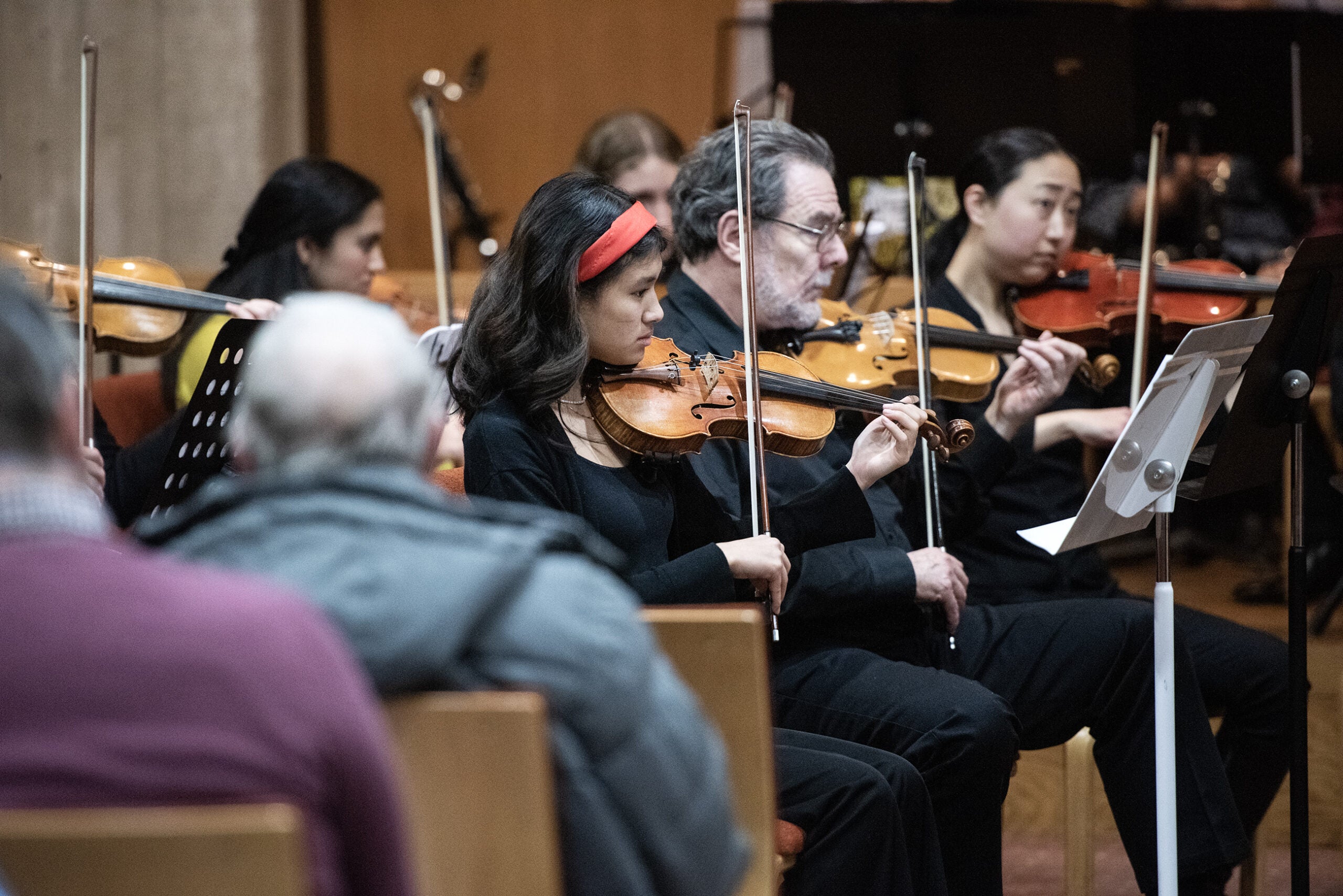In a Christmas-dazzled church sanctuary on a Sunday evening, the musicians of the Black Diaspora Symphony Orchestra tune up their instruments. Some mingle and others introduce themselves.
Their annual Memorial Concert for Missing and Departed Children is just one week away.
“It’s gonna be a lot of Black and brown kids who don’t even know what the instrument is that you’re holding,” conductor Dayvin Hallmon tells the musicians. “And this is going to be their first time. And their parents’ first time. So, you’re changing lives.”
Stay informed on the latest news
Sign up for WPR’s email newsletter.
The group’s December concert at Central United Methodist Church in Milwaukee was open to anyone who lost a loved one over the last year. It came at the end of another record year of gun violence in Milwaukee, which saw more than 200 homicides this year. Nationally, gun violence is now a leading cause of death for children in the United States.
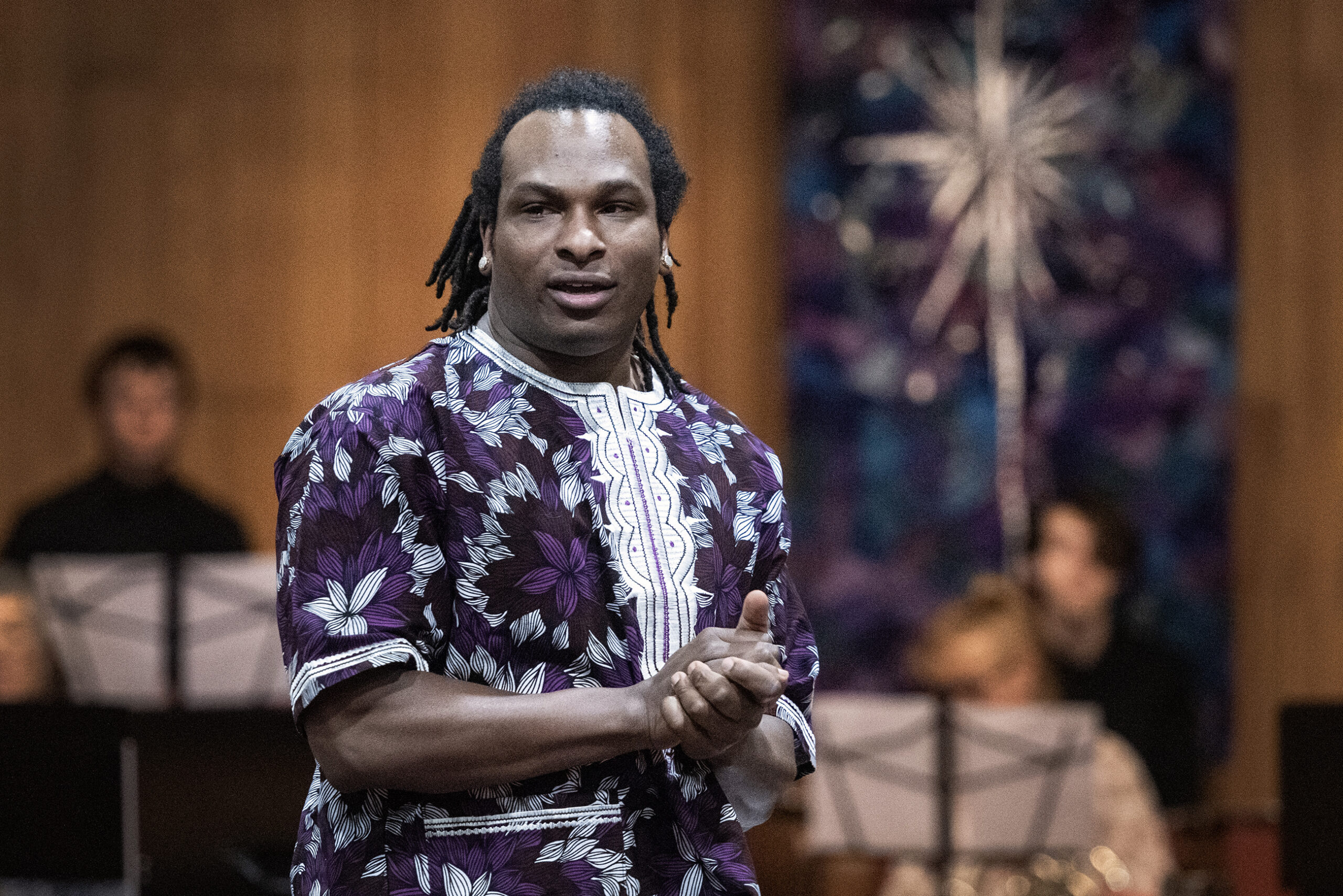
“I don’t want to assume that this is magically going to take all the pain away, because it won’t,” Hallmon said. “There’s nothing that can do that. But I think that you can take your sadness, you can take your fear, you can take your disappointment, and metaphorically, you can put it on a boat, and you can send that boat away. You don’t need to know where it goes. All you need is for it to leave you.”
The orchestra is just one arm of Hallmon’s larger organization, the Black String Triage Ensemble. It has a volunteer-based ensemble that sends string players to the sites of shootings to help people in the community grieve. The goal, Hallmon said, is to cushion the blow for all those who bear witness to tragedies.
Most of the group’s players are people of color, and another part of its mission is bringing Black and Latin composers to the forefront of symphonic music. Hallmon founded the group last year. Musicians — high schoolers, educators and retired performers — come from all over the state to participate.
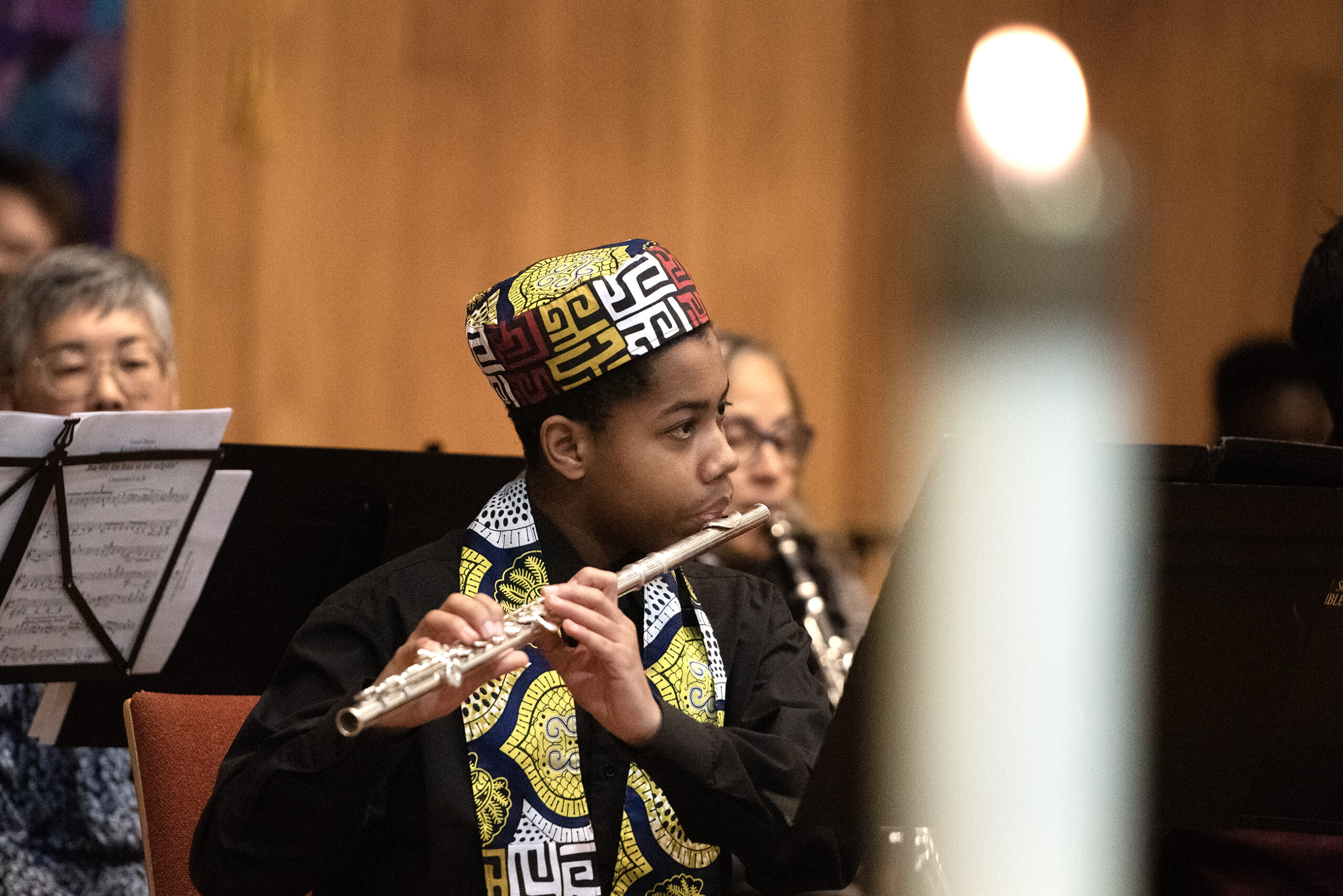
Hallmon said people of color have contributed to all fields of music. He called it a “real tragedy” that few people understand the roots of music and its ties with enslaved Americans.
“I’m tired of symphonic audiences that are so white, it looks like a Klan rally,” he said. “No more. No more. I am tired of Black and brown people in America, who think that we didn’t write anything in the symphonic catalog.”
Group’s anti-gun-violence message ‘hits close to home’
The December concert honored lives lost this year, whether from gun violence, COVID-19 or other causes. Nearly 100 wooden, orange plump chairs sat in the room, with vaulted wooden panels stretching above. Christmas wreaths hung from the walls.
Austin Bare, the lead vocalist, said the concert music is “devastating.”
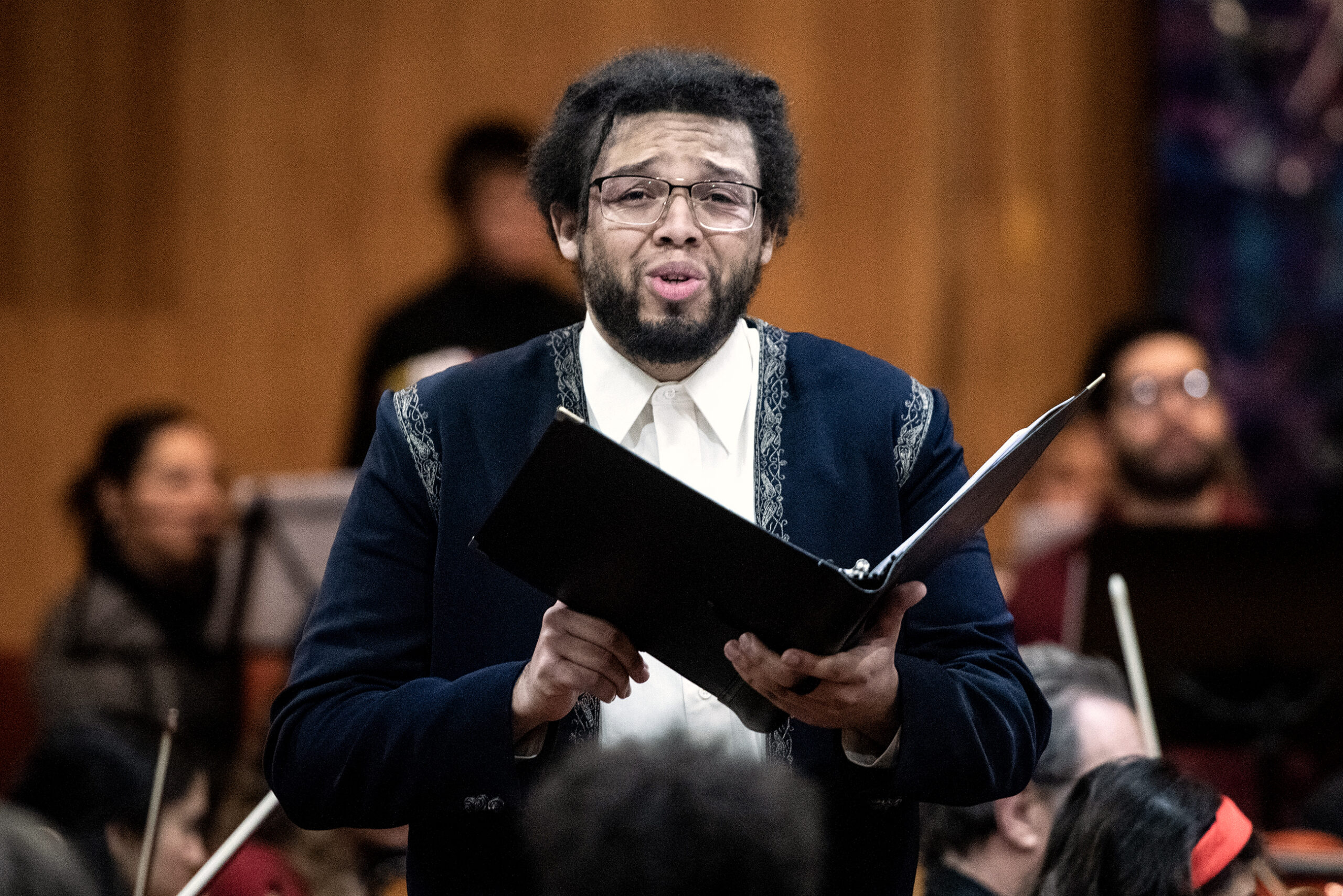
He sang from the song cycle “Kindertotenlieder” by Gustav Mahler. Other somber tunes followed: “Mother’s Sacrifice” by L. Viola Kinney; “Mother and Child” by William Grant Still; and “Pavane for a Dead Princess” by Maurice Ravel.
After a tumultuous two years full of “hardships and turmoil,” Bare said, he wanted the performance to bring people together.
“Even if it’s just a small community,” he said, “I think it’s great to touch as many hearts as possible.”
Autumn Maria Reed plays the string bass for the orchestra, and she composes music herself. As a Black and mixed-race woman, she often felt alone in the classical music world, but not anymore. Since she joined the Black String Triage Ensemble, she’s made new friends who help her feel part of a community, she said.
Playing music and connecting with other members of the group helps her in other ways. “It gets me out of my own head,” she said. But when she performs with the Black String Triage Ensemble, she finds herself thinking about her own connections to gun violence in the city. She has lost two cousins to gun violence in Milwaukee.
“One of my fears of performing,” she said, “is showing up at a call, and it’s my own relative.”
Reed said her last message to her cousin was a composition she wrote. He died in November, and another cousin died last year.
“It’s not just something abstract,” Reed said. “It really hits close to home.”
Since the start of 2022, there have been 198 shooting deaths in the city, according to the Milwaukee Journal Sentinel database. Of those deaths, 86 percent were Black men, women or children. Eight percent were Hispanic, and 2 percent were Asian. Of the Black males who were shot to death, 11 percent were children.
“I think there are still things to be fighting for, and to be speaking on, and movements to still be had,” Bare said. “Because change does need to happen. And it will happen.”
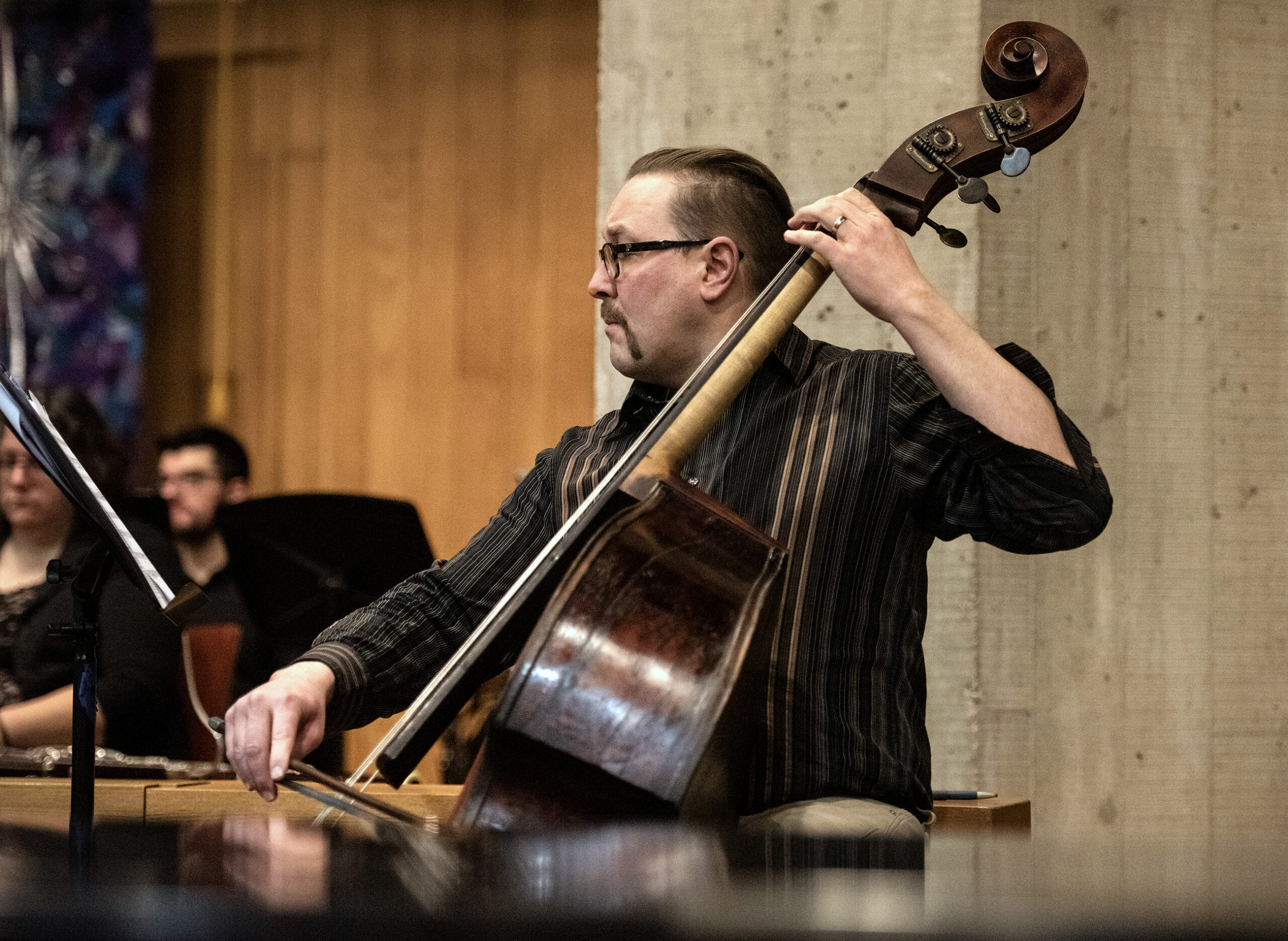
In 2022, Milwaukee was listed among the nation’s highest for homicide rates. And the city still consistently ranks among the worst in the country for Black people to reside.
“As Black Americans, we are America’s canary in the coal mine,” Hallmon said. “Whatever is happening to Black people today is coming for white folks tomorrow if something isn’t done to stop it.”
Music brings community, solace to Black String Triage Ensemble members and listeners
Antonio Turner, a 15-year-old in the West Bend School District, has played the flute for the last five years. On his band teacher’s recommendation, he joined the group.
“I liked the message behind it,” he said, adding that the level of gun violence in Milwaukee is alarming.
Hallmon said he hopes to expand the group and offer more comfort to grieving families. The orchestra’s next concert will be for Juneteenth, the national holiday commemorating the end of slavery in the United States.
Turner said music has the power to convey messages when words fail.
“Instead of speaking what you want to say,” he said, “you can play what you’re trying to say, and deliver the message that way.”
Wisconsin Public Radio, © Copyright 2025, Board of Regents of the University of Wisconsin System and Wisconsin Educational Communications Board.
